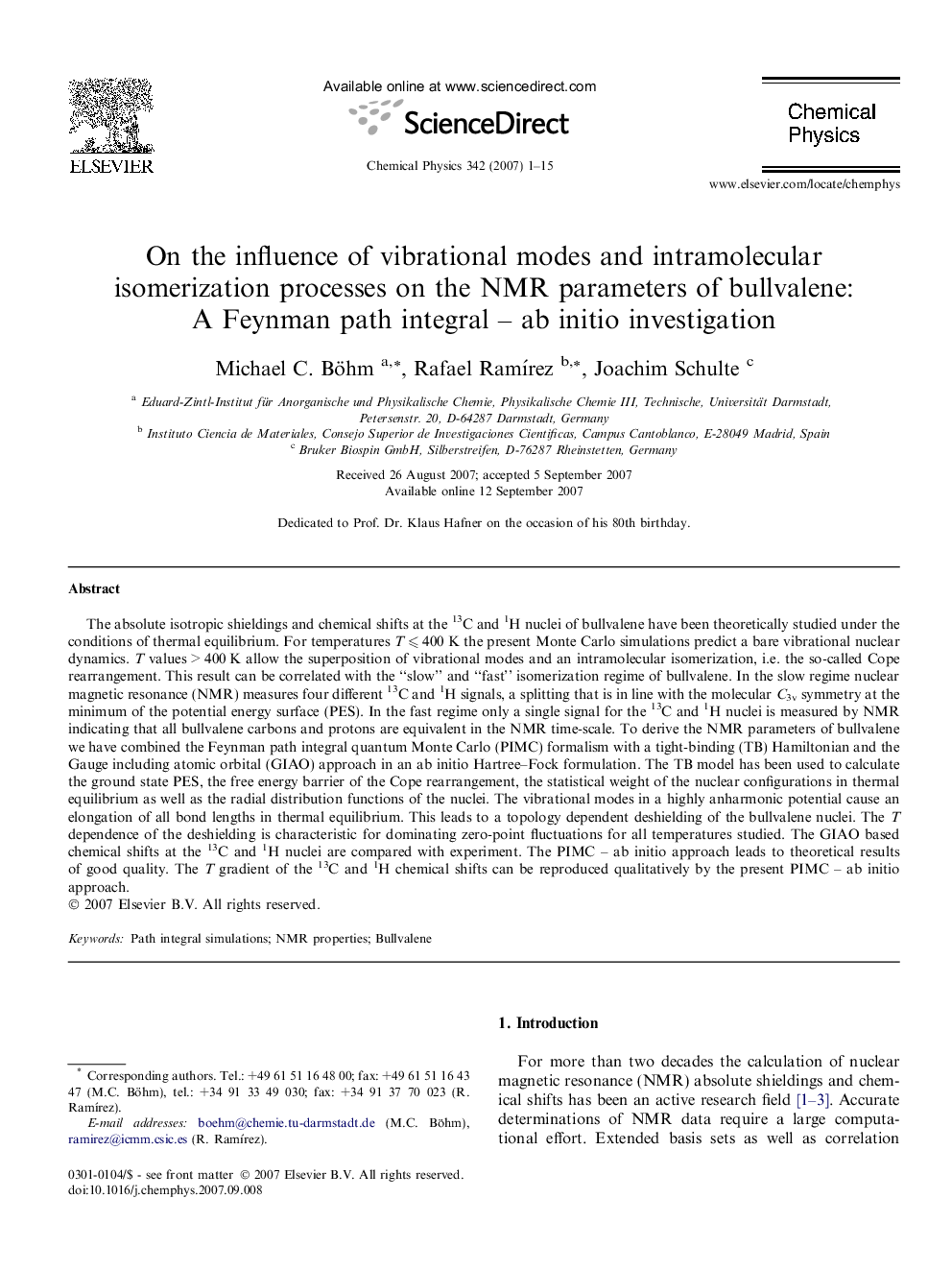| کد مقاله | کد نشریه | سال انتشار | مقاله انگلیسی | نسخه تمام متن |
|---|---|---|---|---|
| 5376121 | 1504316 | 2007 | 15 صفحه PDF | دانلود رایگان |
عنوان انگلیسی مقاله ISI
On the influence of vibrational modes and intramolecular isomerization processes on the NMR parameters of bullvalene: A Feynman path integral - ab initio investigation
دانلود مقاله + سفارش ترجمه
دانلود مقاله ISI انگلیسی
رایگان برای ایرانیان
موضوعات مرتبط
مهندسی و علوم پایه
شیمی
شیمی تئوریک و عملی
پیش نمایش صفحه اول مقاله

چکیده انگلیسی
The absolute isotropic shieldings and chemical shifts at the 13C and 1H nuclei of bullvalene have been theoretically studied under the conditions of thermal equilibrium. For temperatures T ⩽ 400 K the present Monte Carlo simulations predict a bare vibrational nuclear dynamics. T values > 400 K allow the superposition of vibrational modes and an intramolecular isomerization, i.e. the so-called Cope rearrangement. This result can be correlated with the “slow” and “fast” isomerization regime of bullvalene. In the slow regime nuclear magnetic resonance (NMR) measures four different 13C and 1H signals, a splitting that is in line with the molecular C3v symmetry at the minimum of the potential energy surface (PES). In the fast regime only a single signal for the 13C and 1H nuclei is measured by NMR indicating that all bullvalene carbons and protons are equivalent in the NMR time-scale. To derive the NMR parameters of bullvalene we have combined the Feynman path integral quantum Monte Carlo (PIMC) formalism with a tight-binding (TB) Hamiltonian and the Gauge including atomic orbital (GIAO) approach in an ab initio Hartree-Fock formulation. The TB model has been used to calculate the ground state PES, the free energy barrier of the Cope rearrangement, the statistical weight of the nuclear configurations in thermal equilibrium as well as the radial distribution functions of the nuclei. The vibrational modes in a highly anharmonic potential cause an elongation of all bond lengths in thermal equilibrium. This leads to a topology dependent deshielding of the bullvalene nuclei. The T dependence of the deshielding is characteristic for dominating zero-point fluctuations for all temperatures studied. The GIAO based chemical shifts at the 13C and 1H nuclei are compared with experiment. The PIMC - ab initio approach leads to theoretical results of good quality. The T gradient of the 13C and 1H chemical shifts can be reproduced qualitatively by the present PIMC - ab initio approach.
ناشر
Database: Elsevier - ScienceDirect (ساینس دایرکت)
Journal: Chemical Physics - Volume 342, Issues 1â3, 6 December 2007, Pages 1-15
Journal: Chemical Physics - Volume 342, Issues 1â3, 6 December 2007, Pages 1-15
نویسندگان
Michael C. Böhm, Rafael RamÃrez, Joachim Schulte,